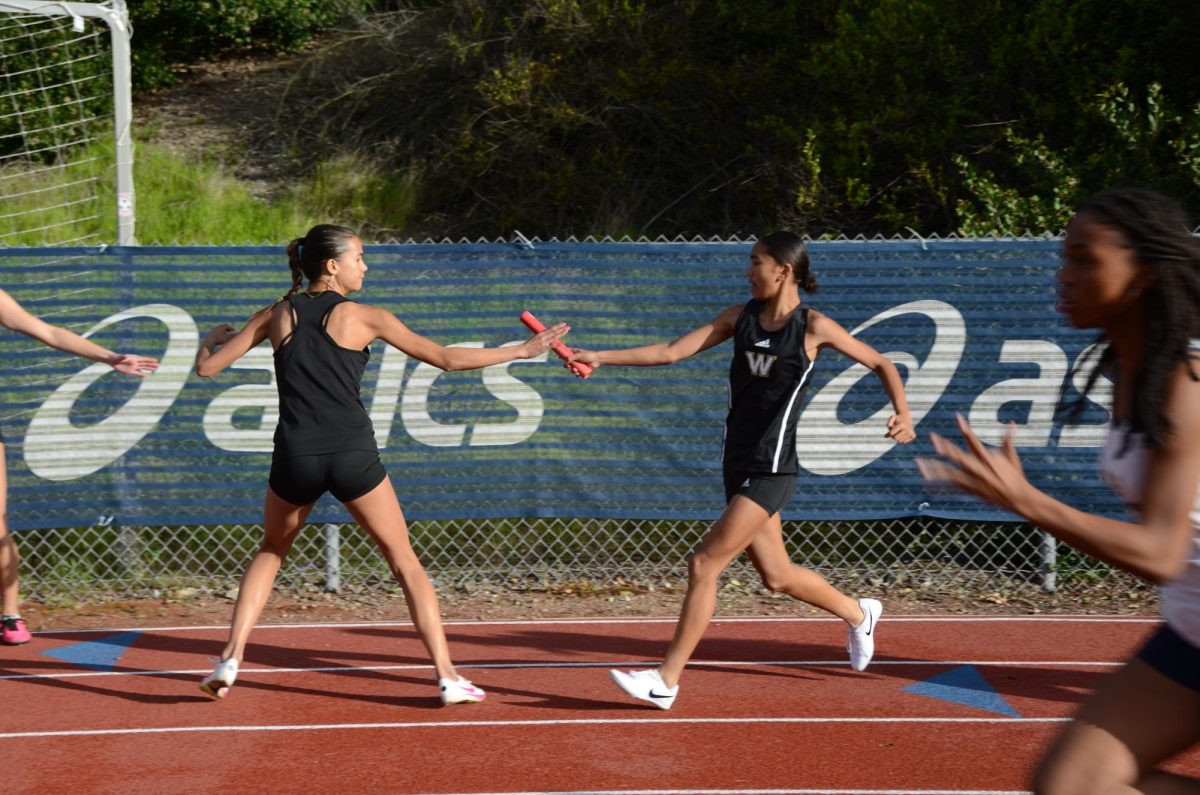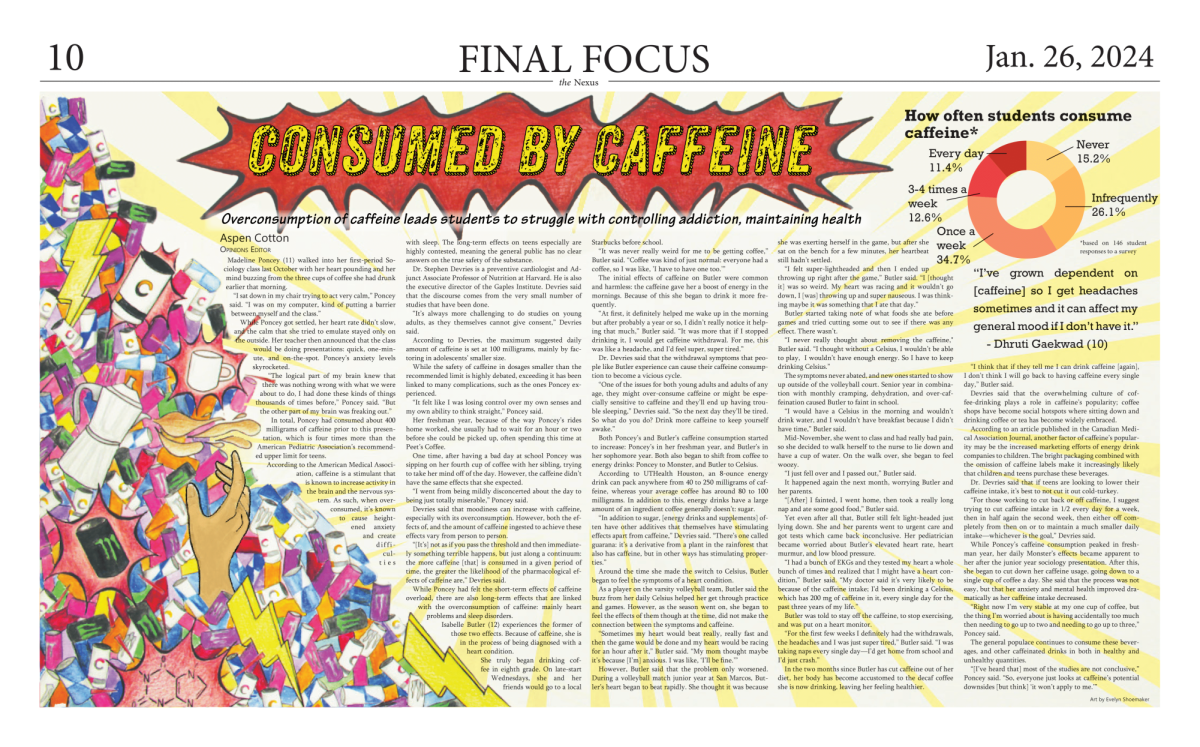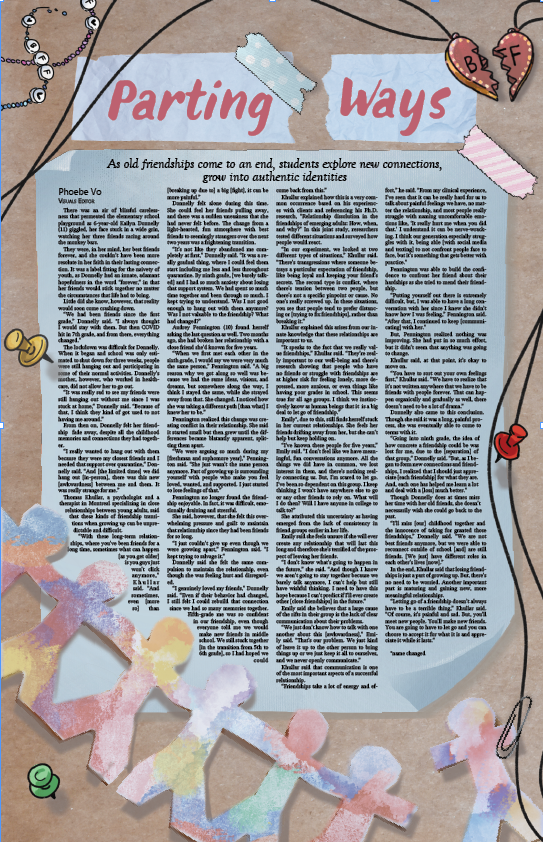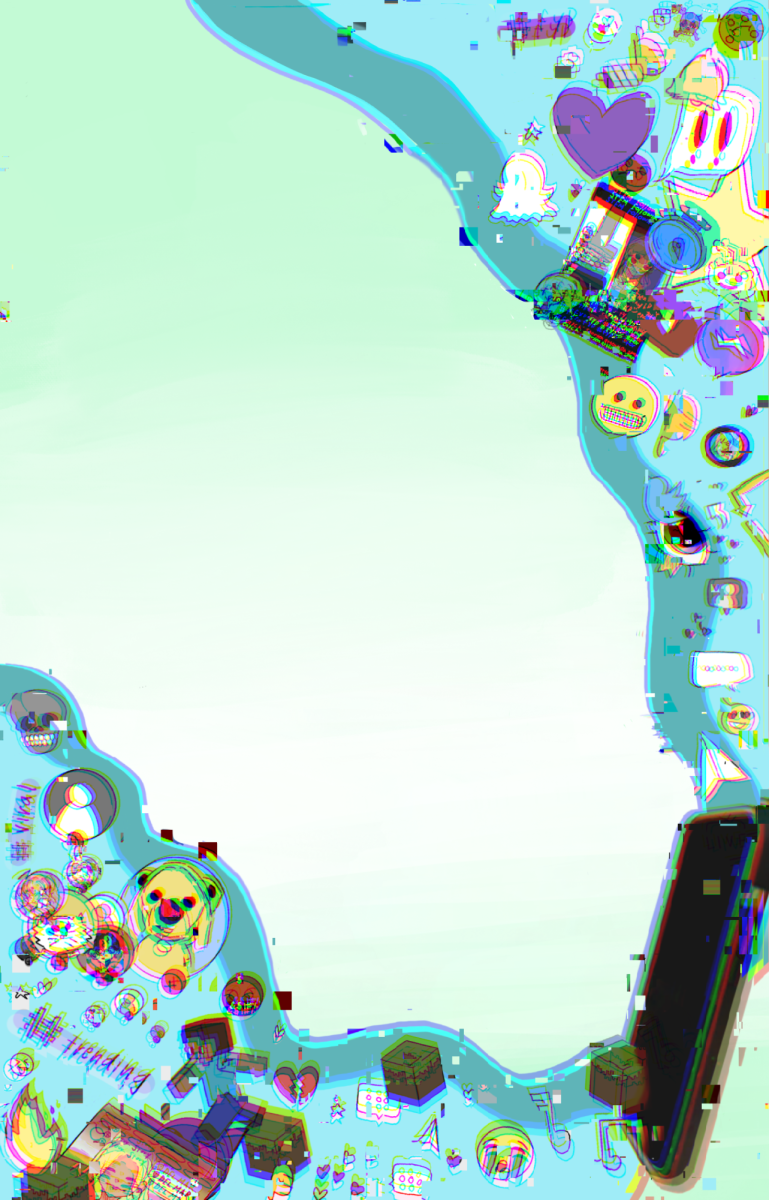Part 1 of 2:
Ninety-five million photos and videos are posted on Instagram per day. Two billion users are active on Facebook every month. And according to a survey done by Simon Kept of The Next Web, as of August, there were 3.028 billion active users on social media.
On these different online platforms, teens update statuses to “in a relationship,” add significant other’s initials in their biographies, and post dedication photos with the caption #WomenCrushWednesday or #ManCrushMonday.
And like most students, Lindsay Chin (11) admits she is addicted to her phone.
Whether she’s waiting in a line, walking to another class during passing periods, or sitting in church every Sunday, Chin often finds her head down, index finger sliding across the glass of her iPhone.
“Whenever I don’t have anyone to talk to, I automatically look down at my phone,” she said. “I guess it makes me feel more secure and less self-conscious.”
Although Chin’s then-boyfriend, William, did not attend the same school as her, they saw each other at church twice a week. Outside of church, the two communicated via text messaging.
Through a screen, talking to one another came naturally, but in person, Chin said, it was different; there were long pauses between dialogue, and the two would sit side-by-side in silence for durations of time that she said felt too long.
“I felt more comfortable talking through a screen than in person, so that’s how technology began to take over the [most recent] relationship in my life,” Chin said. “It felt almost as if I was dating two different people.”
Sherry Turkle, founder and current director of Massachusetts Institute of Technology’s “Initiative on Technology and Self,” attributes this disconnect between Chin and William to the high rise in social networking, which allows people to create an entirely different persona if they desire.
“When I ask people what is wrong with having a conversation [in real life] they tell me that it takes place in real time and you can’t control what you’re going to say,” Turkle said. “Texting, email, and posting let us present the self as we want to be—we get to edit, and that means we get to delete.”
Thus, while Chin’s online self seemed to match perfectly with her boyfriend’s, their offline selves did not. Chin said that as she reflected on their past relationship, she believes that they jumped to labeling each other as boyfriend and girlfriend too fast because they thought that their close connection online would transfer into their real lives.
“I think a lot of our awkwardness in real life resulted from the lack of personal connection,” Chin said. “For example, spilling secrets is a lot easier when you’re not looking at the person face-to-face. Sometimes when we met in person, I couldn’t even look at him in the eyes because I was glued to my phone.”
Technology dominated their relationship from the start, as Chin said, a large factor that contributed to their break-up was that they struggled to hold a conversation when they saw each other in person.
“People end up sacrificing genuine conversation for online connection,” Turkle said. “[Texting] gives information in little ‘sips,’ and when you add all the ‘sips’ together, they don’t create a full ‘gulp’ of real conversation. Connecting in ‘sips’ may work for gathering discrete bits of information, but not for understanding each other.”
Although Chin and her boyfriend were friends for three years before they began dating, Chin said that a possible factor as to why the relationship wasn’t strong was because they felt a sense of pressure to label the relationship so soon because so many of her friends “shipped” them together.
“I learned that I shouldn’t use social media as a way to even get into the relationship at first because in this past relationship, talking so much online caused me to see him in a different light than he actually was,” She said. “Also, I personally wouldn’t post about my relationship online because I feel as though when people display their dating life on social media, others always make comments like ‘you two are so cute,’ which impacts the way you feel about the relationship you’re in because it makes you feel validated even when you know the relationship isn’t going well.”
Professor of philosophy at Eastern Kentucky University, Michael Austin refers to the act of posting for likes or comments to dissuade doubts as “social media self-deception.”
“We often use social media to put forth an ideal version of ourselves and our lives, emphasizing the positives and ignoring or minimizing the negatives,” he said. “This not only involved deceiving others, but if we believe our own social media [posts], we deceive ourselves.”
At first glance, posts of peers in relationships often look perfect. But according to Austin, people tend to forget that social media profiles are solely the highlights of a person’s life, so all the possible arguments, temporary break-ups, and drama are left offline.
“It’s beneficial to cultivate deep friendships to undermine this self-deception,” he said. “Because although social media may help in creating close connections, face-to-face interactions are irreplaceable.”








